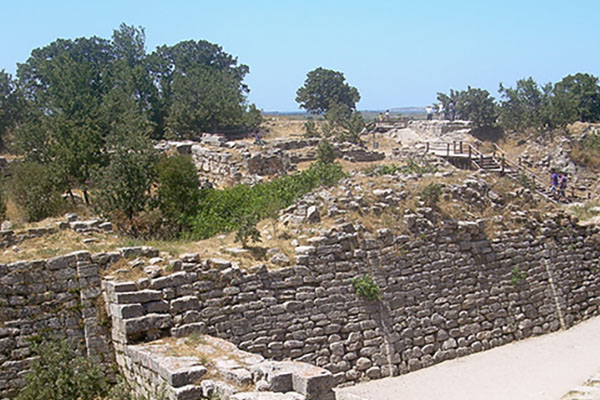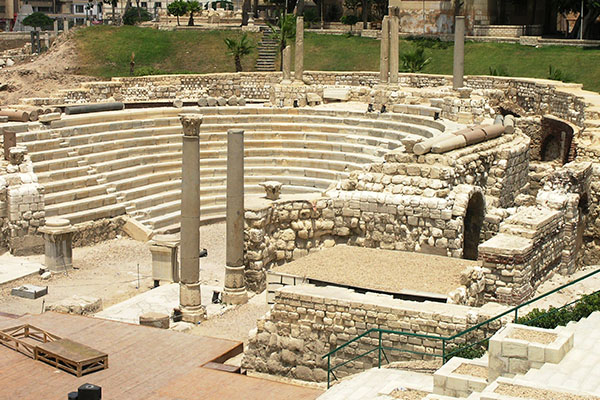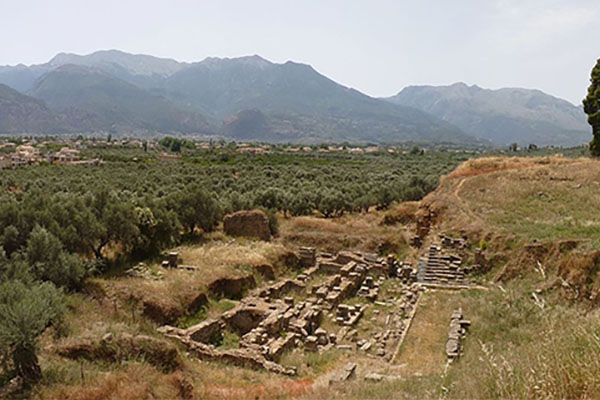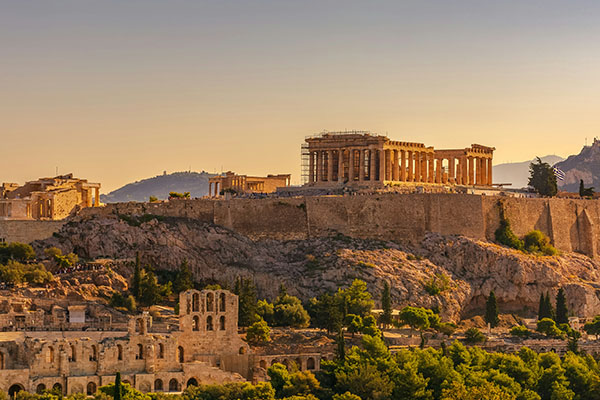Sparta, situated in the southern part of the Peloponnese peninsula in ancient Greece, is synonymous with martial prowess, discipline, and a unique socio-political system. Renowned for its formidable military and austere way of life, Sparta emerged as a dominant city-state in the Greek world, playing a crucial role in the Peloponnesian Wars and leaving an indelible mark on Greek history.
History of Sparta: Warrior Society and Political System
Founding and Dorian Migration: Sparta was founded in the 9th century BCE by the Dorian Greeks. The city-state experienced a unique form of government, known as the dual kingship, with two kings reigning simultaneously.
Military Society: Sparta's society was centered around the military. Young boys underwent rigorous training in the Agoge, a state-controlled education system, to become elite warriors known as hoplites.
Peloponnesian Wars: Sparta played a leading role in the Peloponnesian Wars (431–404 BCE), opposing Athens and its Delian League allies. The conflict reshaped the Greek political landscape and marked the decline of both major powers.
Helots and Social Structure: Sparta's social structure was defined by the division between Spartiates, free citizens and warriors, and Helots, a servile class. The Helots, largely agricultural laborers, were subjected to a strict regime of control.
Landmarks of Sparta: Echoes of Ancient Valor
The Acropolis: Sparta's Acropolis, unlike Athens' famed counterpart, was a military and religious center. The Sanctuary of Artemis Orthia, dedicated to the goddess Artemis, was an essential religious site.
Menelaion: The Menelaion, associated with Menelaus, the legendary king of Sparta, served as a shrine and burial site. It held religious significance in the Spartan tradition.
Spartan Walls: The ancient city was surrounded by walls that played a role in the city's defense. The Spartans, renowned for their military prowess, faced the challenge of protecting their city against potential invasions.
Fascinating Facts about Sparta: Insights into Spartan Life
Military Training (Agoge): Spartan boys underwent a rigorous upbringing known as the Agoge, which included physical training, discipline, and exposure to hardship. The goal was to produce resilient and disciplined warriors.
Women of Sparta: Spartan women enjoyed more rights and freedoms than their counterparts in other Greek city-states. They were known for physical fitness and had a reputation for producing strong offspring.
Crypteia: The Crypteia was a secretive and harsh rite of passage for young Spartan men. They were tasked with clandestine operations, including hunting down and testing their skills on the Helots.
Lack of Coinage: Sparta had a unique economic system, and it was said that Spartans did not use traditional coinage. The emphasis on military virtues often took precedence over economic pursuits.
Limited Cultural Contributions: Unlike Athens, which excelled in cultural and intellectual achievements, Sparta focused primarily on military matters. Consequently, it made fewer contributions to philosophy, arts, and literature.
Sparta, with its distinctive society and unwavering focus on military excellence, remains an intriguing chapter in ancient Greek history. The city-state's legacy endures as a testament to the formidable Spartan warriors and their enduring impact on the ancient world.
| Location | 37.0745° N, 22.4303° E |
|---|

Sparta, renowned for its military prowess, enforced a unique educational system called the agoge, designed to train young boys into disciplined warriors from as early as seven years old.

Celebrated in legend and history, the ancient city of Troy is a timeless symbol of epic tales and archaeological intrigue.
Discover
Explore the ancient allure of Alexandria, once a beacon of knowledge and culture in the ancient world.
Discover
Discover the legendary city of Sparta, renowned for its fierce warriors and unique societal structure.
Discover
Discover the vibrant heartbeat of Greece in the historic city of Athens, home to iconic landmarks like the Acropolis.
DiscoverThe ancient Greek Olympics, held in Olympia every four years, celebrated athleticism, unity, and cultural pride, serving as a testament to the enduring spirit of competition and excellence that transcends time and borders.
Discover
Ancient Greek wars, such as the Persian Wars and the Peloponnesian War, were pivotal conflicts that shaped the course of history, highlighting the struggle for power, independence, and the clash of civilizations in the ancient Mediterranean world.
Discover
Ancient Greek culture and society, characterized by its emphasis on art, philosophy, and civic engagement, fostered a vibrant intellectual and social landscape where innovation flourished, democracy thrived, and the pursuit of knowledge and excellence was celebrated as fundamental values of civilized life.
Discover
Ancient Greek art and architecture, with its harmonious proportions and timeless elegance, continue to inspire awe and admiration millennia later.
Discover
Greek mythology, a rich tapestry of gods, heroes, and mythical creatures, captivates the imagination with its tales of love, betrayal, and epic adventures that delve into the depths of the human psyche.
Discover
Ancient Greek history, marked by remarkable achievements in democracy, philosophy, and warfare, shaped the foundation of Western civilization, leaving an indelible legacy of innovation and cultural influence that continues to resonate to this day.
Discover
The ancient Greek Olympics, held in Olympia every four years, celebrated athleticism, unity, and cultural pride, serving as a testament to the enduring spirit of competition and excellence that transcends time and borders.
Discover
Ancient Greek wars, such as the Persian Wars and the Peloponnesian War, were pivotal conflicts that shaped the course of history, highlighting the struggle for power, independence, and the clash of civilizations in the ancient Mediterranean world.
Discover
Ancient Greek culture and society, characterized by its emphasis on art, philosophy, and civic engagement, fostered a vibrant intellectual and social landscape where innovation flourished, democracy thrived, and the pursuit of knowledge and excellence was celebrated as fundamental values of civilized life.
Discover
Ancient Greek art and architecture, with its harmonious proportions and timeless elegance, continue to inspire awe and admiration millennia later.
Discover
Greek mythology, a rich tapestry of gods, heroes, and mythical creatures, captivates the imagination with its tales of love, betrayal, and epic adventures that delve into the depths of the human psyche.
Discover
Ancient Greek history, marked by remarkable achievements in democracy, philosophy, and warfare, shaped the foundation of Western civilization, leaving an indelible legacy of innovation and cultural influence that continues to resonate to this day.
Discover
Find out more about ancientgreece.com